Europe’s Extreme Summer Weather Could Cost It Billions

© Miguel Riopa/Agence France-Presse — Getty Images

© Miguel Riopa/Agence France-Presse — Getty Images

© Jean Pierre Loth\INA, via Getty Images
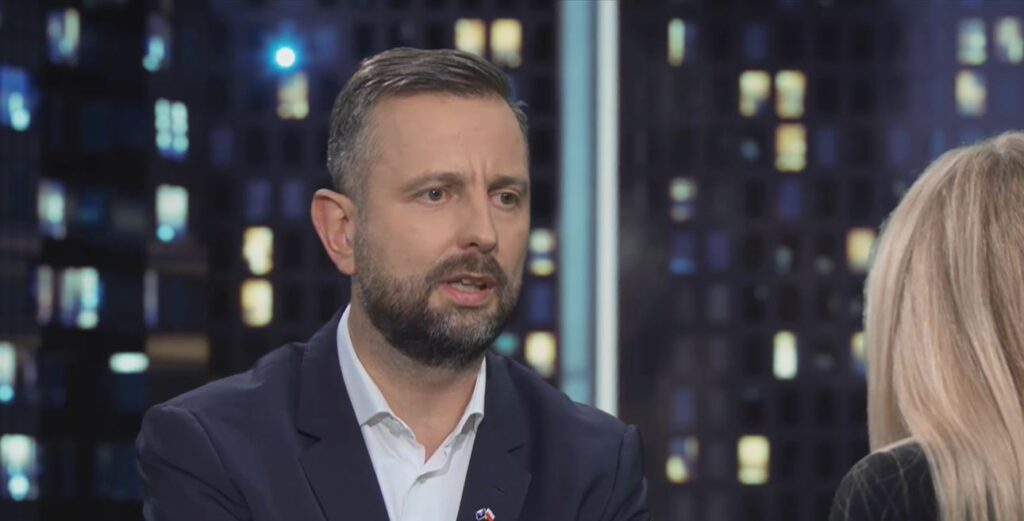
Russian drones breached Polish airspace on the night of 10 September 2025, prompting a rapid NATO response. Sweden will urgently send air defense systems and fighter jets to Poland, confirmed Defense Minister Władysław Kosiniak-Kamysz in a live appearance on TVN24.
“This day is not just about words of support, but also concrete declarations,” Kosiniak-Kamysz said on TVN24. “I just received information from Sweden’s Minister of Defense about the urgent delivery of additional support to Poland—air defense systems and aircraft.”
He stressed that allied decisions are now backed by action.
“Every such escalation makes us more united, not divided,” he said.
According to the minister, Sweden’s military aid will arrive alongside multi-level commitments from other NATO allies, delivered “within dozens of hours.”
Debris from the drones was recovered, but identifying the models remains difficult.
“They often broke into very small pieces,” Kosiniak-Kamysz stated.
He linked the incident directly to Russia’s broader ambitions.
“Russia’s strategy never changes,” he said. “They may change slogans or shapes, but they always move in one direction: destroying the civilization of the West, destroying our culture, our values, and the civilization of life.”
Support from NATO countries has been swift and tangible. The Netherlands will deliver Patriot batteries, NASAMS systems, anti-drone equipment, and 300 soldiers. Other allies—including the Czech Republic, France, the United Kingdom, Germany, Finland, Italy, and the Baltic states—have made clear commitments.
“All our allies are ready to provide support,” Kosiniak-Kamysz said. “They are making concrete declarations.”
Poland triggered consultations under Article 4 of the NATO Treaty—an uncommon move, but one the minister called “a rare and serious situation.” He referenced the 2003 NATO mission near Türkiye’s border with Iraq as a precedent for this type of coordinated defense initiative.
When asked why this particular night saw intensified Russian drone activity, Kosiniak-Kamysz pointed to the timing.
“The correlation with the Zapad exercises is evident,” he said.
Zapad 2025, the latest joint Russian-Belarusian military drills, officially begin on 12 September. Poland has already announced it will shut its border with Belarus starting midnight that day, citing security risks tied to the exercise.

© Matteo Minnella/Reuters

© Enrico Parenti for The New York Times


As European leaders prepare for a summit on 4 September in Paris, their approaches to security guarantees for postwar Ukraine remain divided into three distinct groups, the Financial Times reports. While a small group of countries, including the UK, are ready to deploy troops, Italy has ruled out participation entirely, and a larger group—among them Germany—have yet to make any firm commitments.
The planned multinational force for Ukraine is at the center of ongoing negotiations over long-term security guarantees. The initiative is being pushed by France and the UK, with the US offering limited but targeted support. According to FT, European capitals are under increasing pressure to clarify what each country is willing to contribute.
French President Emmanuel Macron will host the summit, with some leaders joining in person and others remotely. The talks follow a preparatory meeting on 3 September involving defense officials. UK Defense Secretary John Healey co-chaired the call, where he stated that Britain was “reviewing readiness levels of UK Armed Forces and accelerating funding to be ready for any deployment to Ukraine,” according to the UK Ministry of Defense.
An official from the Élysée Palace told FT that technical preparations for the coalition’s contribution had been completed by those countries “willing and able” to offer security guarantees. “Today we have enough contributions to be able to tell the Americans that we are ready to assume our responsibilities, provided that they assume theirs,” the official said.
US President Donald Trump has told European leaders that Washington would offer intelligence, command and control systems, and help in establishing an air defense shield, but insisted that the European side must lead the effort.
NATO Secretary-General Mark Rutte said on 3 September that he expected “concrete proposals” to be delivered either that day or soon after. He added that further steps would include intensified coordination with the US regarding its participation in the broader effort.
Germany’s position remains unclear. Officials in Berlin reportedly reacted negatively to European Commission President Ursula von der Leyen’s comments to FT that member states were working on “pretty precise plans” for potential deployments to Ukraine, including a “clear road map.”
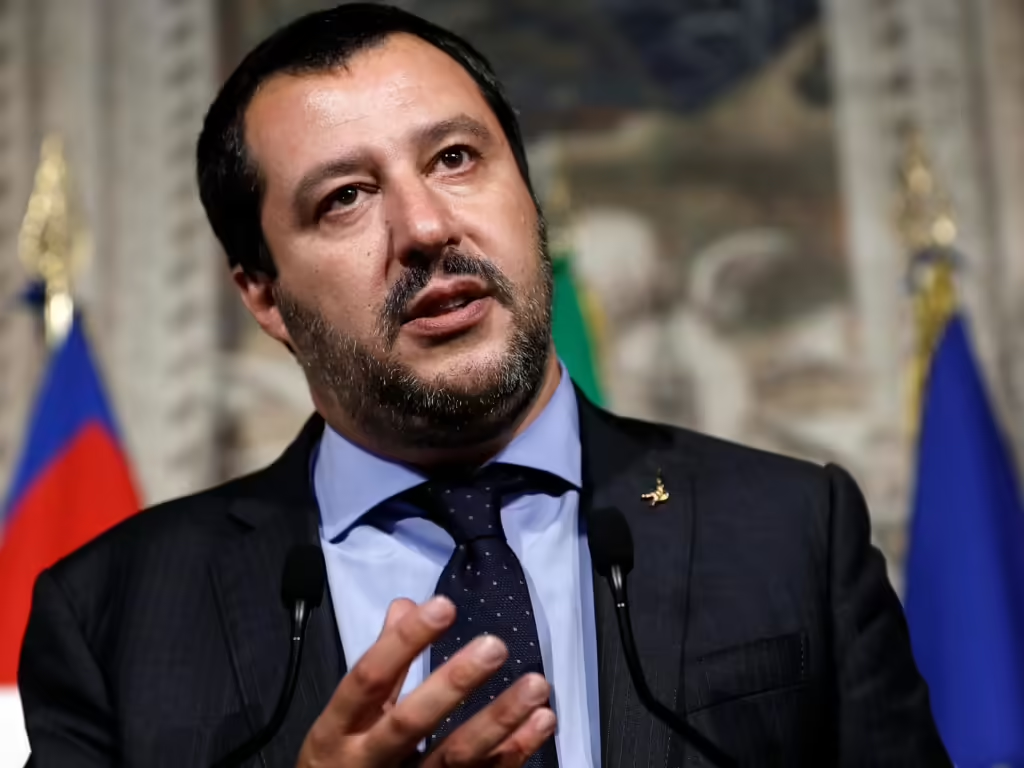
Italy’s ambassador to France, Emanuela D’Alessandro, was summoned to the French Foreign Ministry on 21 August, following what Paris deemed “unacceptable” remarks by Italian Deputy Prime Minister Matteo Salvini toward Emmanuel Macron, France Inter and Radio France’s international desk reported on 22 August.
During a speech on 20 August, Salvini criticized the French president over his support for the idea of sending troops to Ukraine.
“Italian soldiers in Ukraine? Absolutely not. If Emmanuel Macron wants it, let him go himself. Put on a helmet, take a rifle and go to Ukraine yourself,” the Italian vice-premier said.
According to a diplomatic source contacted by France Inter, during the ambassador’s summoning to the Quai d’Orsay, “she was reminded that these remarks went against the climate of confidence and the historical relationship between our two countries.” The source said these statements undermine “recent bilateral developments, which have highlighted strong convergences between the two countries, particularly regarding unwavering support for Ukraine.”
Neither Italian diplomacy nor the services of Italy’s Prime Minister Giorgia Meloni wished to comment when contacted by Radio France’s international desk on 22 August.
This marks the second time Salvini, who maintains close ties with Marine Le Pen, has verbally attacked Macron over Ukraine support. On 7 March 2025, during a trip to Milan, he called the French president “crazy,” accusing him of pushing Europe toward war with Russia.
The diplomatic incident occurs amid broader discussions about security guarantees for Ukraine. US Special Representative Steve Witkoff said that during a meeting in Alaska, Russian leader Vladimir Putin and Donald Trump agreed on “reliable security guarantees” for Ukraine, including protection analogous to NATO’s Article 5.
Following these developments, a “coalition of the willing” has expressed readiness to play a role in providing security guarantees for Ukraine by deploying military contingents on its territory. However, the nature of US support remains unclear. The White House has said Washington “can certainly help coordinate and possibly provide other means of security guarantees.”
Trump emphasized that the US would not send its military personnel but did not rule out assistance with “air transport” for allies. The Wall Street Journal reported that US Secretary of State Marco Rubio will head a working group of national security advisors and NATO representatives to develop a security guarantee project for Ukraine.
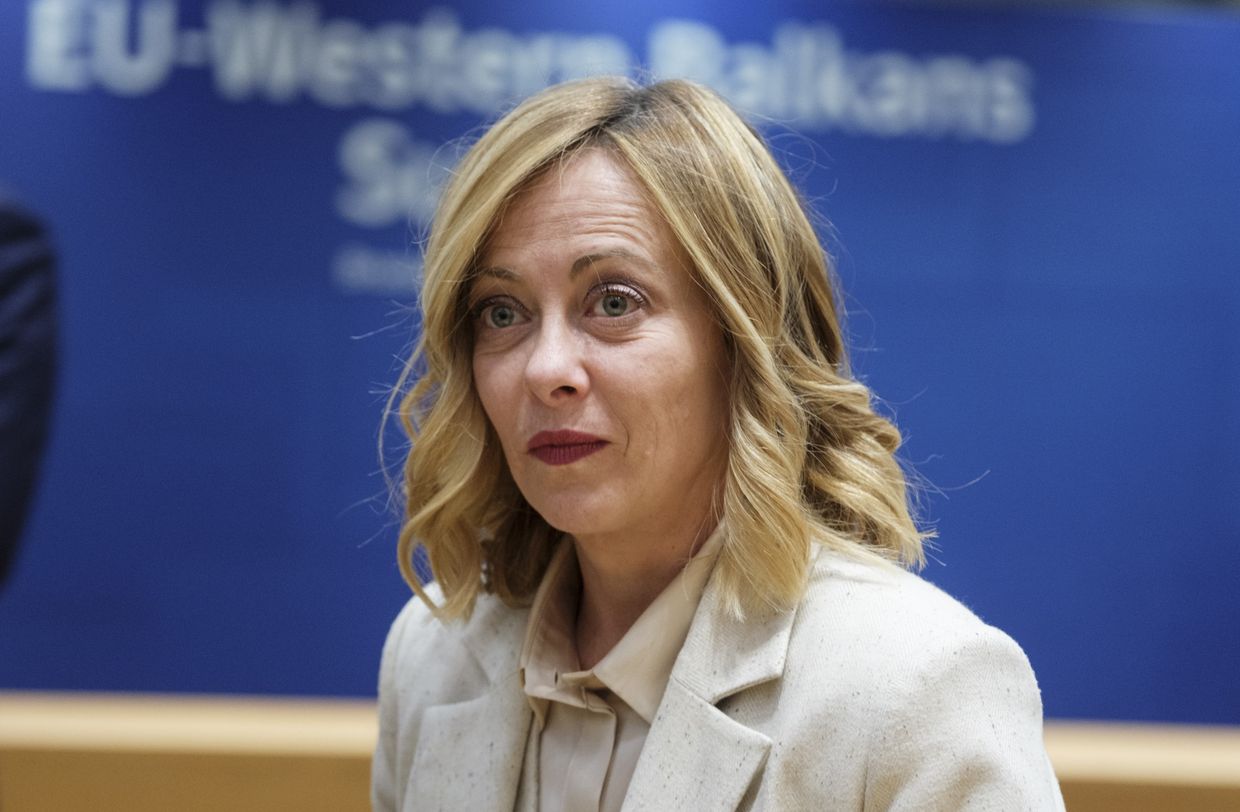
The U.S. has "reviewed" the components it is supplying Ukraine, but did not halt assistance, Italian Prime Minister Giorgia Meloni said on July 4.
"The United States has not stopped supplying weapons and supporting Ukraine, it has reviewed the decision to supply specific components... (this is) significant but very different from the total American disengagement that has been reported," Meloni said, speaking at a forum.
U.S. President Donald Trump on July 3 denied that Washington has paused supplying weapons to Kyiv amid media reports of a halt in shipments.
Pentagon spokesperson Sean Parnell confirmed on July 2 that some military assistance to Ukraine has been halted as the U.S. Defense Department conducts a review of foreign aid deliveries.
"I hope for positive developments on the issue," Meloni said, adding that she has spoken to Trump regarding Ukraine.
The weapons reportedly held back include two dozen Patriot air defense missiles, over two dozen Stinger air-defense systems, precision artillery rounds, Hellfire missiles, drones, and more than 90 AIM air-to-air missiles launched from F-16 fighter jets.
NATO Secretary General Mark Rutte said on July 2 that he understands the White House's need to safeguard its own defense capabilities, but underscored that Ukraine urgently requires sustained support.
"I totally understand that the U.S. always has to make sure its interests are covered... When it comes to Ukraine, in the short term, Ukraine cannot do without all the support it can get," Rutte said.
A bipartisan group of U.S. lawmakers voiced their opposition to the decision to halt military aid shipments to Ukraine on July 2.
"We must build up our own Defense Industrial Base here in the U.S. while simultaneously providing the needed assistance to our allies who are defending their freedom from brutal invading dictators. To not do both is unacceptable," Republican Rep. Brian Fitzpatrick, the co-chair of the Congressional Ukraine Caucus, said.
Democratic Senator Richard Blumenthal, a member of the Senate Armed Services Committee, described the military aid pause as "fallacious and maybe even disingenuous."
 The Kyiv IndependentThe Kyiv Independent news desk
The Kyiv IndependentThe Kyiv Independent news desk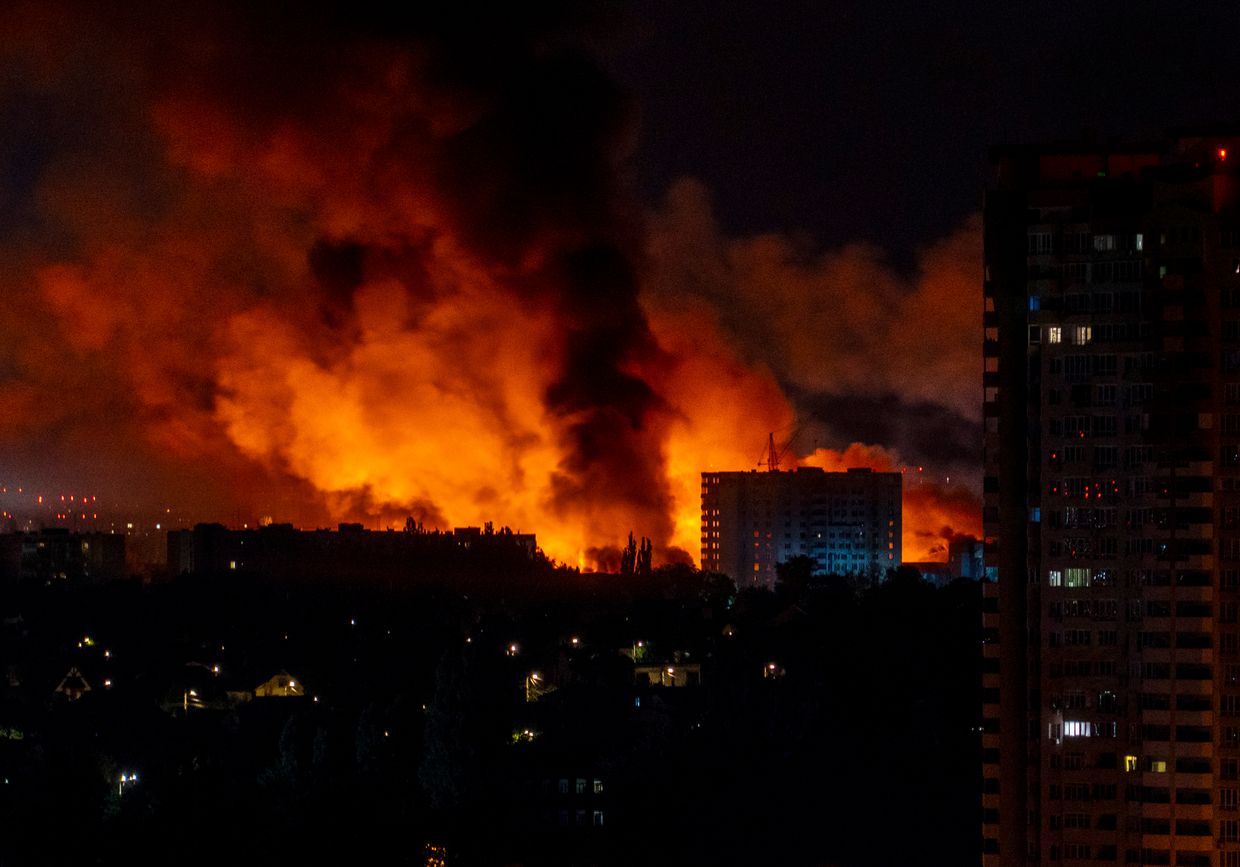
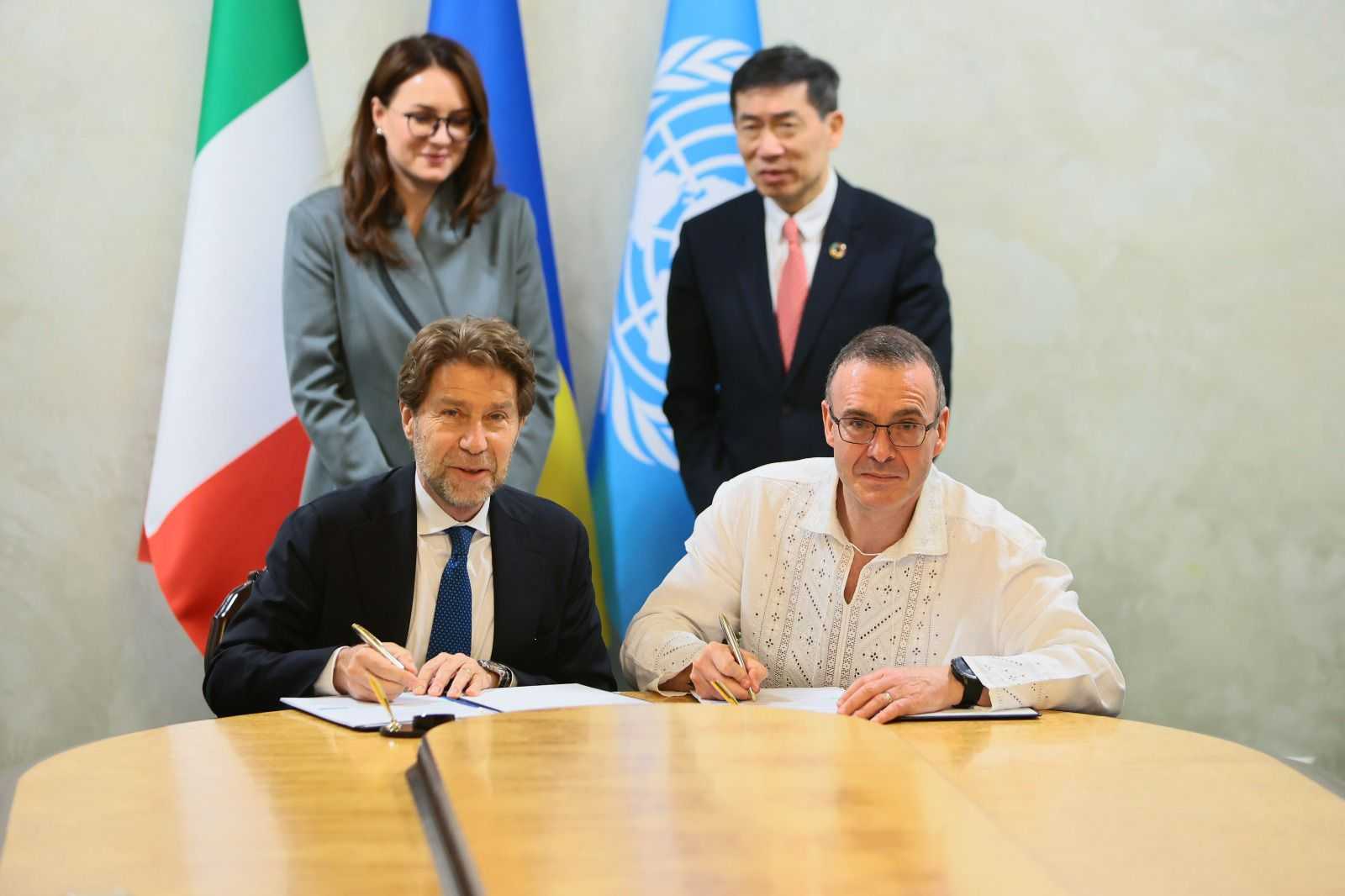
Italy has pledged 1.5 million euros (approximately $1.6 million) to support humanitarian demining efforts in Ukraine, deepening its partnership with the United Nations Development Programme (UNDP) and the Ukrainian government.
The agreement was formalized during a high-level ceremony in Kyiv on June 23 attended by Italian Ambassador Carlo Formosa, UN Assistant Secretary-General and new UNDP Administrator Haoliang Xu, Jaco Cilliers, Resident Representative of the UNDP in Ukraine, and Ukraine’s First Deputy Prime Minister and Economy Minister Yuliia Svyrydenko.
"Demining is not just a technical operation; it is a deeply humanitarian act that combines cooperation and innovation to restore hope in Ukraine," Ambassador Formosa said. "This project is not only a response to the emergency — it’s a step toward recovery. It’s about returning land to farmers, playgrounds to children, and safe roads to families."
The funding will support UNDP’s mine action program, which focuses on clearing land contaminated by mines and explosive remnants of war, ensuring the safe return of land to Ukrainian communities.
The initiative comes as Ukraine continues to grapple with one of the world’s largest demining challenges. According to the State Emergency Service, the total area of potentially mined land has been reduced by over 20% since late 2022. However, approximately 137,000 square kilometers (52,900 square miles) — much of it farmland — remain contaminated. Demining operations are carried out by the emergency service personnel, National Police, Ministry of Defense, and non-governmental organizations.
Currently, 112 certified demining operators, including eight international groups, are active in Ukraine, the State Emergency Service reported on June 24. Their combined capacity includes more than 9,000 personnel, 278 specialized vehicles, and over 13,000 metal detectors.
While significant progress has been made, Ukrainian officials stress that continued international support and funding are critical to accelerating clearance efforts.
 The Kyiv IndependentAlisa Yurchenko
The Kyiv IndependentAlisa Yurchenko